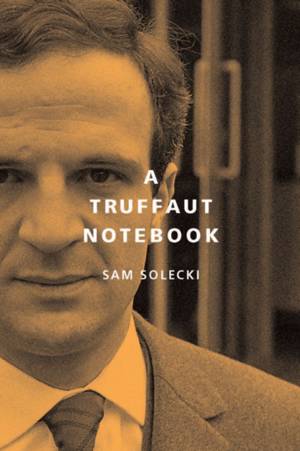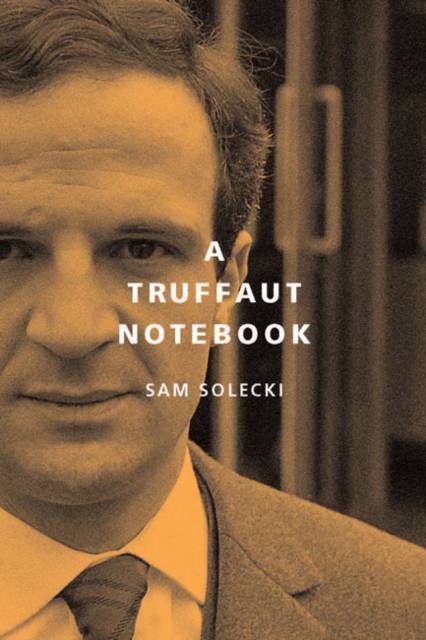
Bedankt voor het vertrouwen het afgelopen jaar! Om jou te bedanken bieden we GRATIS verzending (in België) aan op alles gedurende de hele maand januari.
- Afhalen na 1 uur in een winkel met voorraad
- In januari gratis thuislevering in België
- Ruim aanbod met 7 miljoen producten
Bedankt voor het vertrouwen het afgelopen jaar! Om jou te bedanken bieden we GRATIS verzending (in België) aan op alles gedurende de hele maand januari.
- Afhalen na 1 uur in een winkel met voorraad
- In januari gratis thuislevering in België
- Ruim aanbod met 7 miljoen producten
Zoeken
€ 48,45
+ 96 punten
Omschrijving
François Truffaut (1932-1984) ranks among the greatest film directors and has had a worldwide impact on filmmaking as a screenwriter, producer, film critic, and founding member of the French New Wave. His most celebrated films include The 400 Blows, Shoot the Piano Player, Jules and Jim, Day for Night, and The Last Metro. A Truffaut Notebook is a lively and eclectic introduction to the life and work of this major cinematic figure. In entries as brief as a page, as well as in full-length essays, it examines topics such as Truffaut's mentors, the autobiographical nature of his films, his place in the film tradition, his film criticism, his reputation, his relationships with other directors, and the formal and thematic coherence of his body of work. Sam Solecki also argues for Truffaut's continuing appeal and relevance by examining his influence on filmmakers like Woody Allen, Noah Baumbach, Alexander Payne, Patrice Leconte, and Jean-Pierre Jeunet, and on writers such as Julian Barnes, Ann Beattie, and Salman Rushdie. Because the book returns regularly to the author's shifting responses to Truffaut's work over the last fifty years, it also offers an autobiographical meditation on his own lifelong fascination with film. Consisting of over eighty short entries and essays, as well as provocative lists, dreams, and quizzes, A Truffaut Notebook is an original and exciting text and a model of passionate engagement with cinema.
Specificaties
Betrokkenen
- Auteur(s):
- Uitgeverij:
Inhoud
- Aantal bladzijden:
- 356
- Taal:
- Engels
- Reeks:
Eigenschappen
- Productcode (EAN):
- 9780773546240
- Verschijningsdatum:
- 16/10/2015
- Uitvoering:
- Hardcover
- Formaat:
- Genaaid
- Afmetingen:
- 163 mm x 231 mm
- Gewicht:
- 698 g

Alleen bij Standaard Boekhandel
+ 96 punten op je klantenkaart van Standaard Boekhandel
Beoordelingen
We publiceren alleen reviews die voldoen aan de voorwaarden voor reviews. Bekijk onze voorwaarden voor reviews.









